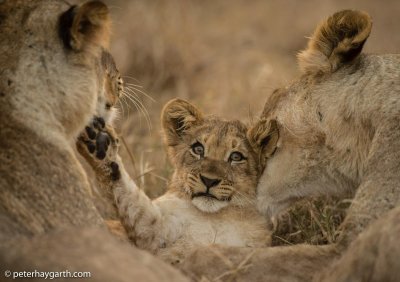News
Latest Lion Aid News
Is Botswana seriously contemplating reviving lion trophy hunting? There are strong hints
Thursday 27th November 2025
|
Is Botswana seriously contemplating reviving lion trophy hunting? There are strong hints:
President Boko: “Botswana is ranked number one globally for megafauna conservation, proudly hosting the most significant African elephant population. While wildlife remains the cornerstone of our tourism economy, and a vital source of rural livelihoods, this success brings new challenges, including poaching and human-wildlife conflict”.
“The Botswana Ministry of Environment and Tourism recently signed an MoU with Conservation Force, led by trophy hunting advocate John Jackson III. On paper, it’s framed as a conservation partnership but in reality, it’s putting the fox in charge of the henhouse. Science shows that hunting rarely protects wildlife… In fact, hunting often destabilizes populations, increases human-wildlife conflict, and accelerates declines. Trophy hunting, the focus of Conservation Force, worsens these problems: quotas are poorly enforced, corruption is rampant, and local communities see little benefit.” – Roar Wildlife News. On 17 July this year, a Wildlife Department sent a letter to “Dear Researcher” entitled “Request for lion related data to inform development of the National lion management plan”. Sent on behalf of the Director of Wildlife, the “request” for this information was supposedly driven by a need for information to “guide the conservation and SUSTAINABLE MANAGEMENT of lions in Botswana” and “escalating human/wildlife conflict and other emerging threats”. Read into that what you will – but the fact is that there are few (if any) dedicated “lion researchers” in Botswana, and the Wildlife Department can hardly be called “well informed” about the level of lion/human conflict as they do not keep any semblance of accurate information about crucial data. Like how many lions are annually being commercially poached, how many lions have been killed by Wildlife Department Problem Animal Control squads, how many lions are killed by farmers.
Former President Seretse Khama Ian Khama declared an end to trophy hunting of several species in Botswana in 2014, including lions, based on reports of diminishing numbers. That ban on lion hunting has stood until now. During the 10 years 1995 – 2016, Botswana exported 134 lion hunting trophies. The last semi-comprehensive lion population survey was conducted in about 2000, and only in the north (Moremi and Chobe National Park areas) and in a few immediately adjoining trophy hunting areas. The extrapolated total of lions came to about 1,500, with significant deviations around the 95% confidence level. In other words, no semi-comprehensive and statistically meaningful lion surveys for 25 years! More localised surveys have been taken since then, but these are of limited national relevance.
Recently (17-18 November) the Department of Wildlife and National Parks organised a meeting to “review the recently concluded hunting season”. One item of discussion was how communities benefited from allocated quotas, as well as strategies to ensure that “all Batswana” derive maximum benefit from hunting activities. No synthesis of this meeting has yet been published, but one plain fact should have been clear to the participants right from the start – the community information was data deficient. This is because agreements made between communities and private hunting operators are confidential. It would therefore appear that payments to individual community members are completely opaque. It is well known that such payments are usually largely absorbed by community elites, and the small amount that trickles down to the average community member is minimal. Without accuracy in such data, the promise of ensuring that benefits will accrue to “all Batswana” is ludicrous.
So….
Unlike natural resources like Botswana’s diamonds that truly do benefit all Batswana via national income that benefits schools, hospitals, roads, pensions, maintenance of the Army, Air Force, the DWNP, provides salaries for politicians and civil servants – the wildlife resource only provides financial benefit to few. Those are indeed to the local governments via concession fees and mostly to foreign companies that own hunting concessions. No residents of southern major towns/cities like Gaborone, Francistown see advantage of wildlife because profits earned are not equitably distributed among all citizens. Botswana will state that wildlife is kept in trust for all Batswana, present and future generations, not just communities living mostly in the north (Moremi, Chobe, etc). You could argue that communities living with wildlife suffer deprivations because of that proximity – destroyed maize and sorghum fields by elephants, killed livestock by predators. The Government (you could age very many years before your claim is considered) does promise to provide compensation…
Will lion trophy hunting happen again in Botswana? LionAid will fight to see it does not by giving you current information. Public awareness both in Botswana and internationally MUST come to the fore to nip this looming proposal in the bud!
Please click here to DONATE. Thank you. Tags: lion trophy hunting, Botswana Categories: Trophy Hunting |
Posted by Chris Macsween at 15:42
No comments have been posted yet.
Add a new comment
Existing user
New user sign up




